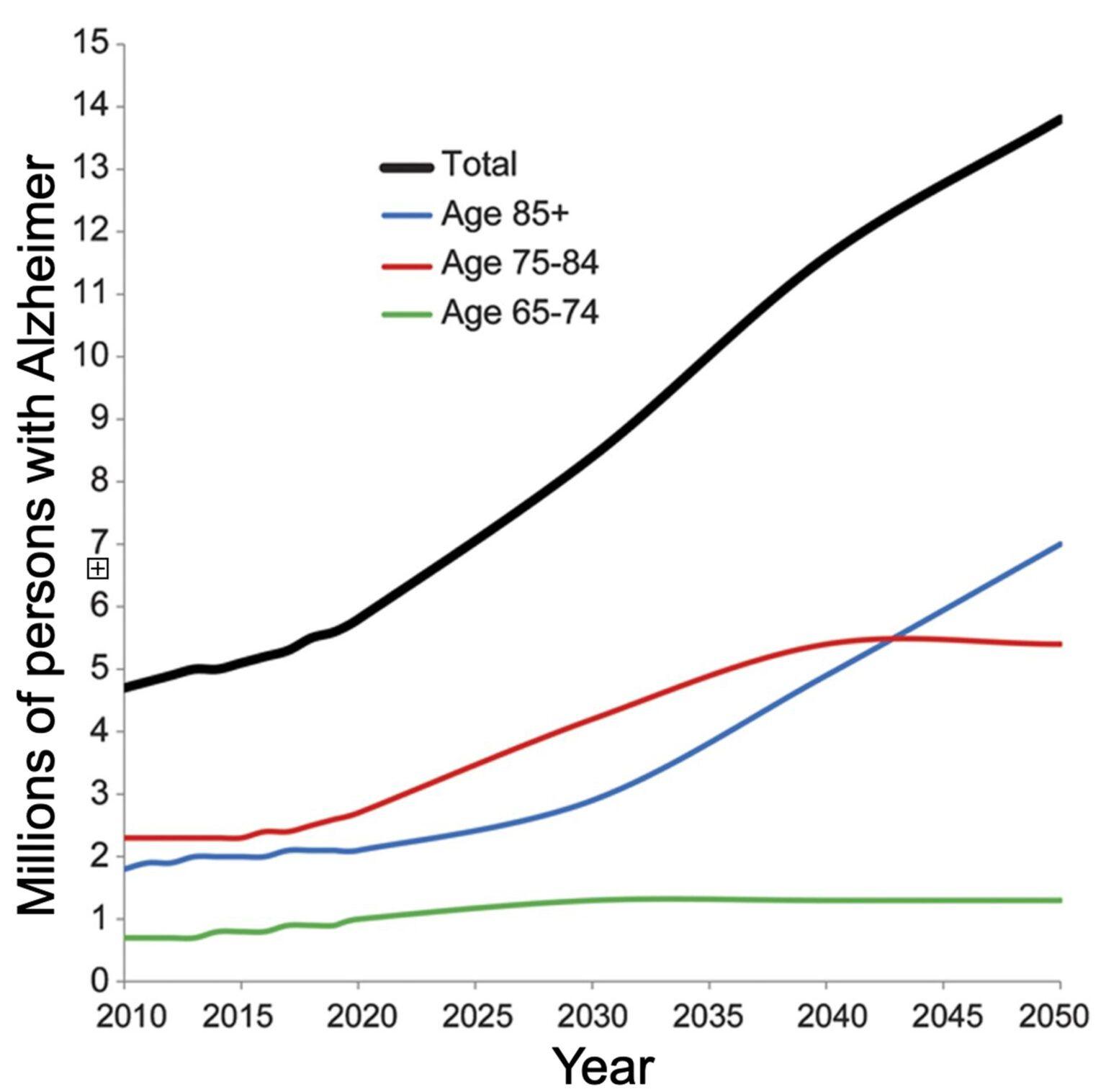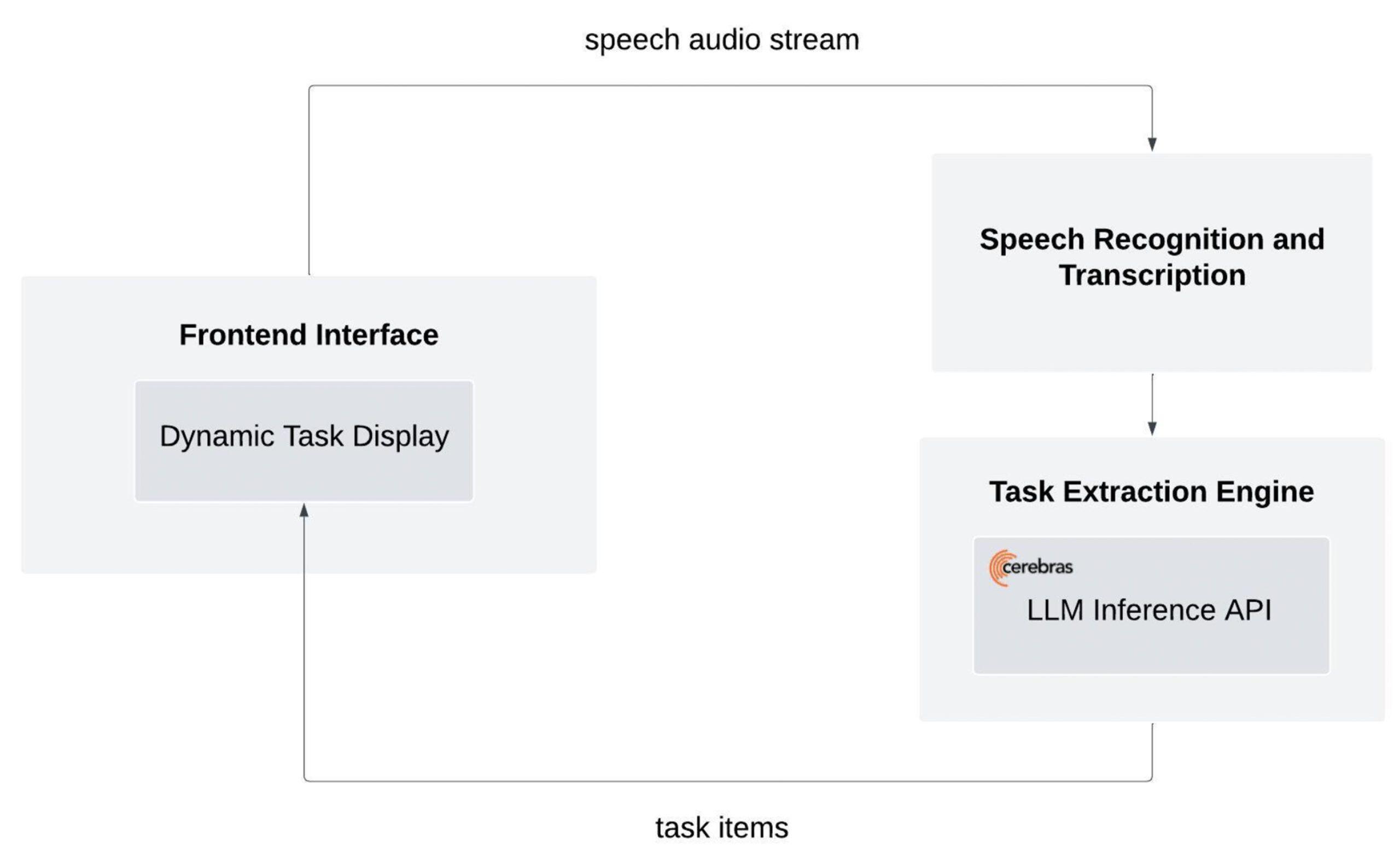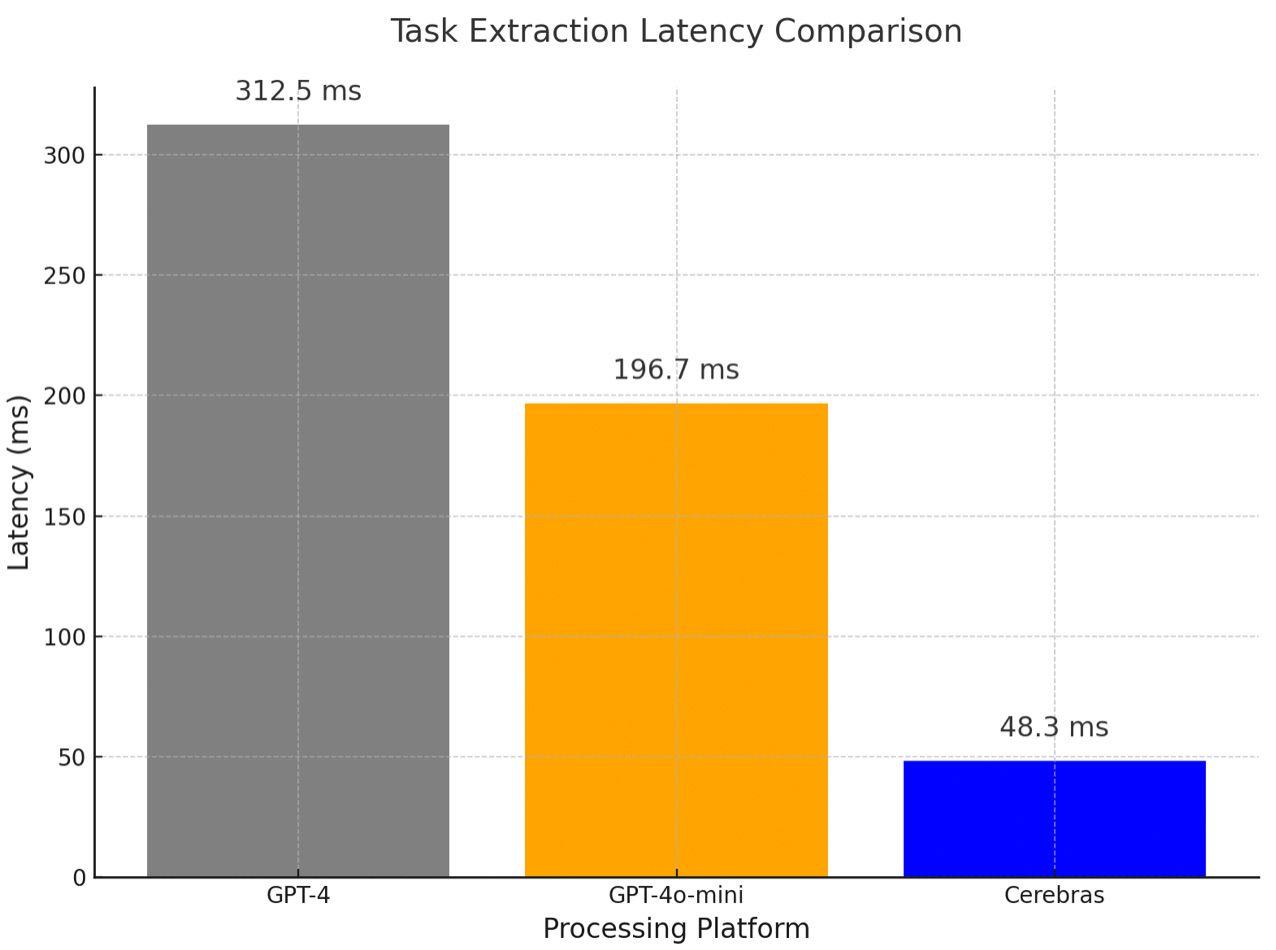Dec 09 2024
Memo-ry: Simplifying Daily Tasks for People with Memory Loss - Cerebras
The Challenge – Assisting Individuals with Dementia Through Task Management
Millions of individuals with Alzheimer’s and dementia struggle daily to manage tasks, recall essential details, and maintain independence. Some tasks are crucial, like remembering to take medicine and check blood sugar on time. Existing tools like static to-do lists or verbal reminders often fail to adapt to dynamic, real-life interactions. For example, static lists require manual updates, which may not be feasible for users experiencing cognitive difficulties. Verbal reminders, while helpful, lack specificity and are prone to being forgotten.
Impact of These Inefficiencies:
Slow inference has been a critical bottleneck for real-time task extraction. Prior to advancements like Cerebras’ inference technology, extracting actionable tasks live from conversations was impractical. Traditional systems often required hundreds of milliseconds—sometimes over 300ms—to process speech into actionable tasks.
This delay caused two major problems:
- Break in Conversation Flow: For individuals managing memory loss, waiting even a fraction of a second disrupts the natural flow of communication. Users would either lose patience with the system or forget the context of their task entirely during the delay.
- Incomplete or Missed Tasks: Slow processing meant systems often struggled to keep up with dynamic, fast-paced conversations. Critical tasks could be skipped or only partially recorded, making these tools unreliable for real-world use.
For example, in a conversation like:
“Hi Jensen, remember to pick up groceries and water the plants this afternoon.”
Previous solutions might only partially extract tasks or process them so slowly that users would need to repeat or re-enter them manually—undermining the very purpose of the tool.
Without fast inference, Memo-ry could not operate effectively as a real-time companion. Slow task extraction reduces trust in the system and makes it difficult for users to rely on it in their daily lives.

The Solution
Memo-ry tackles these challenges using Cerebras’ fast inference technology, which processes speech in near real-time to extract actionable tasks. By reducing latency to under 50 milliseconds, Memo-ry offers an experience so seamless that users can maintain a natural flow of conversation without interruptions.
For example, from a conversation like:
“Hi Jensen, good morning. I’m so excited to see you again. Let’s go over today’s plan. First, you have a doctors appointment at 10:30 AM. After that make sure to pick up your prescription from the pharmacy and don’t forget to water the plans this afternoon.”
Memo-ry automatically and instantly extracts:
▢ Attend a doctor’s appointment 10:30 AM
▢ Pick up your prescription from the pharmacy
▢ Water the plants
Fast inference was crucial for Memo-ry’s success, as it unlocks real-time task extraction, which is fundamental for individuals managing cognitive difficulties. Without it, task extraction might feel sluggish or incomplete, undermining the app’s purpose of simplifying daily management for people with dementia.
How I Built This
Architecture Overview
Memo-ry is designed to integrate several components for seamless real-time task extraction:
Frontend Interface: Built with HTML and CSS to ensure a user-friendly, accessible design.
Speech Recognition and Transcription: Leveraged the Web Speech API for real time Speech-to-Text processing.
Task Extraction Engine: Integrated the Cerebras inference API to process transcripts into actionable tasks with sub-50ms latency, ensuring tasks were extracted in real time without disrupting the conversation flow.
Dynamic Task Display: Used JavaScript to dynamically update the UI, presenting tasks as interactive checklists.

Performance Comparison:
Using Cerebras, task extraction latency dropped from ~300ms with traditional GPUs to under 50ms, significantly improving real-time interaction. This reduction in latency by 85% efficiency enabled smoother, faster user experiences critical for the app’s use case. Without Cerebras, my application would have been unable to update tasks in real-time alongside conversations, substantially reducing usability.

What’s Next
Memo-ry has immense potential to improve lives, and future updates aim to broaden its functionality:
- Voice Feedback: Provide auditory reinforcement by reading tasks aloud to users.
- Smart Home Integration: Enable compatibility with Alexa, Google Home, and other devices for hands-free use.
- Mobile App Development: Transition to mobile platforms with push notifications and advanced accessibility features.
- Caregiver Collaboration: Add features for remote task management, allowing caregivers to support users from anywhere.
- AI Personalization: Tailor task suggestions based on user behavior, habits, and needs.
These enhancements will make Memo-ry an indispensable tool for both individuals with memory loss and their caregivers.
About Me
The Cerebras Fellows Program has been instrumental in bringing Memo-ry to life. Its emphasis on fast inference technology allowed me to unlock the full potential of my app, bridging the gap between innovation and usability.
I’m Jensen, an MIT engineering student passionate about using technology to empower underserved communities. Captivated by problem-solving from a young age, I’ve applied my skills to impactful projects like a patent-pending algae biofiltration system to combat school air pollution and an ultrasonic backpack for the visually impaired, developed through a STEM club I founded in high school. At MIT, I’ve expanded into fields like geospatial analysis, NLP, and social impact entrepreneurship, leading projects such as NASA-funded research on urban heat islands and FermiLab studies on air quality’s effect on muon flux. As a low-income student, I’m also dedicated to increasing access to STEM education by teaching free coding classes in Boston, and creating robotics curriculum for underserved schools.
Contact Me
Email: coonradt@mit.edu
Instagram: @robo.rebel17
LinkedIn: https://www.linkedin.com/in/jcoonradt/
Editor
LinkedIn: https://www.linkedin.com/in/ker-lee-yap-38a80856/
Twitter: https://x.com/klyap_
Link to GitHub: https://github.com/JCoonradt/Memo-ry-Application
About the Fellows Program
Cerebras inference is powering the next generation of AI applications—70x faster than on GPUs. The Cerebras x Bain Capital Ventures Fellows Program invites engineers, researchers, and students to build impactful, next-level products unlocked by instant AI. Learn more at cerebras.ai/fellows.